How to Use a VPN in China & Russia Amid a VPN Ban in 2025
It’s not easy to find a VPN that works in Russia and China. These countries actively block non-government-approved VPNs to enforce censorship policies. Without a working and secure VPN, you might be unable to access web services and social media apps.
While China’s crackdown against VPNs is more comprehensive and technologically advanced, you’ll need a reliable VPN that works in both countries to guard your privacy and access mainstream services. Unfortunately, finding one isn’t easy.
My team members in Russia and China rigorously tested several VPNs and found that ExpressVPN is the #1 VPN that works in both countries. Its powerful obfuscation is robust enough against China’s Great Firewall. If you’re traveling to Russia or China, you can test it out yourself — if unsatisfied, you’ll have 30 days to get a refund. Editor’s Note: Transparency is one of our core values at WizCase, so you should know we are in the same ownership group as ExpressVPN. However, this does not affect our review process, as we adhere to a strict testing methodology.
Quick Guide: How to Use a VPN in Russia and China in 3 Steps
- Get a VPN that works. For use in Russia and China, ExpressVPN is my #1 recommendation due to its powerful obfuscated servers and top-grade security and privacy features.
- Connect to a server. Pick a server manually or let the VPN find one for you automatically. Nearby servers are generally faster.
- That’s it! Now, you can browse securely and access your favorite web services and apps in Russia or China.
Important! Due to the strict internet regulations in China, VPN connections can be unstable at times. Despite this, ExpressVPN is known to be reliable and has a 30-day money back guarantee for first-time users. Additionally, we do not endorse VPNs for illegal activities. China has banned non-government approved VPNs, but there have not by any publicly reported cases of a tourist being prosecuted for using one. Still, be sure to use VPNs at your own risk and follow local laws accordingly.
Why and How Do Russia and China Block VPNs?
Russia and China block VPNs to control information, prevent access to censored content, and tighten surveillance of online activities. Here’s a breakdown of how and why they do this:
Russia
Russia’s VPN restrictions aim to limit access to banned content, including social media platforms like Facebook and Instagram. The government uses deep packet inspection (DPI) and other filtering techniques to block specific VPN protocols, such as PPTP and L2TP/IPSec.
Roskomnadzor, Russia’s media watchdog, frequently updates its list of banned VPN services. The government also pressures VPN providers to connect to FGIS, a state-run information system that lets authorities monitor and block access to restricted sites.
China
China’s Great Firewall is a highly advanced internet censorship system that blocks access to foreign content, including VPN services. China uses DPI, port blocking, DNS poisoning, and algorithmic filtering to detect and block VPN traffic.
Additionally, VPN websites are heavily censored, and you can face legal consequences for using unauthorized VPNs. The government allows only state-approved VPNs, primarily for business use, which are closely monitored and compliant with censorship laws.
The Best VPNs That Work in Russia and China (Tested 2025)
1. ExpressVPN — Best Overall VPN That Works in Russia and China With Built-In Obfuscation
Key Features:
- 3,300+ servers in 105 countries, including Hong Kong, Belarus, and other locations near Russia and China
- Built-in obfuscation keeps you safe from DPI and advanced VPN censorship measures
- Includes post-quantum protection, data leak protection, military-grade encryption, and a kill switch
- Has a mirror site so you can download it in Russia and China if it’s unavailable in app stores
- Offers a 30-day money-back guarantee
ExpressVPN is my #1 recommendation to use in Russia and China. It consistently works in high-censorship countries thanks to its obfuscated servers. Obfuscation hides that you’re using a VPN and bypasses DPI and port blocking. Therefore, ExpressVPN lets you access your favorite web services in Russia and China. In addition, ExpressVPN secures you with:
- Data leak protection — stops DNS, IPv4, IPv6, and WebRTC data from leaking outside the VPN tunnel to avoid possible tracking of your online activities in Russia and China.
- Post-quantum protection — combines quantum-resistant algorithms with encryption to protect you against future quantum computing attacks.
- Military-grade encryption — uses a powerful 256-bit cipher to turn your traffic into unreadable code, effectively hiding it from prying eyes and potential surveillance.
- Kill switch — disconnects your device from the internet if a server gets unstable and exposes you online, though ExpressVPN’s servers I tested remained steady throughout.
- TrustedServer technology — uses RAM-only servers that are physically incapable of storing your data, ensuring your online privacy is never compromised.
If you’re already in China or Russia without a VPN, you can use ExpressVPN’s mirror site to download it. This is a copy of its official site hosted under a different URL. Since national firewalls also try to block that, the mirror link keeps changing. To get the latest one, you can contact ExpressVPN’s customer support team via email at support@expressvpn.zendesk.com.
A small downside of ExpressVPN is that it’s slightly more expensive than its peers. However, ExpressVPN consistently works in China and Russia, and other restrictive regions — I’d rather pay a bit extra than bet on another VPN to work. You can also program the app to launch automatically on start-up, guarding your online privacy 24/7.
I recommend ExpressVPN’s 2-year plan due to its % discount. It offers a 30-day money-back guarantee, so you can test it out yourself — if you’re unsatisfied, you can get a full refund. I asked for mine via its 24/7 live chat. The customer support agent didn’t ask any probing questions, and I was reimbursed within 3 working days.
Editor’s Note: Transparency is one of our core values at WizCase, so you should know we are in the same ownership group as ExpressVPN. However, this does not affect our review process, as we adhere to a strict testing methodology.
ExpressVPN works with: Facebook, WhatsApp, Skype, Twitter, YouTube, Netflix, Tinder, Google services, and more
ExpressVPN works on: Windows, macOS, Linux, Chromebook, iOS, Android, smart TVs, Amazon Fire devices, gaming consoles, routers, and more
2025 Update! You can subscribe to ExpressVPN for as low as per month with the 2-year offer (save up to %)! This is a limited offer so grab it now before it's gone. See more information on this offer here.
2. NordVPN — Multiple Security-Enhancing Servers Ensure Privacy in Russia and China
Key Features:
- Network of 7,287+ servers in 118 countries, with nearby locations to China and Russia
- Has obfuscated servers, Double VPN, and Onion over VPN to protect your online privacy under censorship
- Offers robust data leak protection, military-grade encryption, dark web monitoring, LAN invisibility, and a strict no-logs policy
- Gives you the option to download the app in Russia or China through a mirror site
- Includes a 30-day money-back guarantee
NordVPN’s special security servers protect you from prying eyes in Russia and China. Its Double VPN servers encrypt your data twice, making it difficult to trace. Similarly, the Onion over VPN servers route your traffic through the Tor network to make you completely anonymous. In addition, NordVPN guarantees your privacy with:
- Invisibility on LAN — hides your device from others sharing the same network, so you can browse anonymously while staying in hotels in Russia or China.
- Dark web monitoring — continuously scans the dark web so your personal information is never exposed to bad actors.
- Strict no-logs policy — ensures that NordVPN can’t store any of your personally identifiable data or your online activities.
- DNS and IP leak protection — worked seamlessly when I tested 10 of NordVPN’s servers, and none of them revealed my true location.
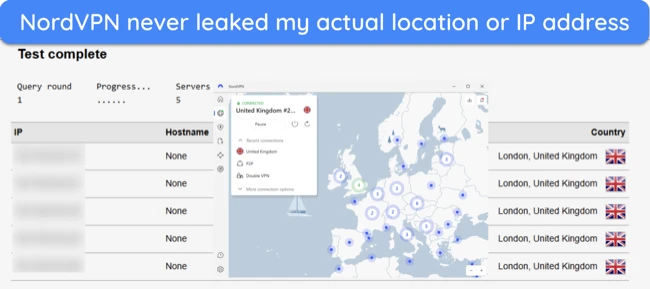
The only issue with NordVPN is that it doesn’t always work in China due to the constantly evolving censorship. However, trying out different obfuscated servers can solve the problem. You can set up a manual IKEv2 connection, which uses UDP port 500, making it less likely to be flagged by Deep Packet Inspection.
As one of the best VPNs in 2025, I recommend NordVPN’s 2-year + 3 months for just a month. All plans are backed by a 30-day money-back policy, so you can claim a refund once you’re back from Russia or China. I requested my refund through live chat without hassle and got it back within 5 business days.
NordVPN works with: Netflix, YouTube, Google services, WhatsApp, Facebook, Instagram, and more
NordVPN works on: Windows, macOS, Linux, iOS, Android, Chrome, Firefox, Edge, tvOS, Android TV, routers, and more
3. PrivateVPN — Stealth VPN Gets Past VPN Blocks and Firewalls in Russia and China
Key Features:
- Small but reliable network of 200+ servers in 63 countries
- Works in China and Russia with its ‘Stealth VPN’ obfuscation
- Protects you with Perfect Forward Secrecy, leak protection, a kill switch, no-logs policy, and military-grade encryption
- Easy to set up on all your devices and supports 10 simultaneous connections
- Gives you 30 days to try it risk-free
PrivateVPN works in Russia and China with ‘Stealth VPN’ enabled. It uses obfuscation through the Shadowsocks proxy to make it seem as if you’re not using a VPN and hide from Deep Packet Inspection used by firewalls. This way, you can access global web services in Russia and China without blocks.
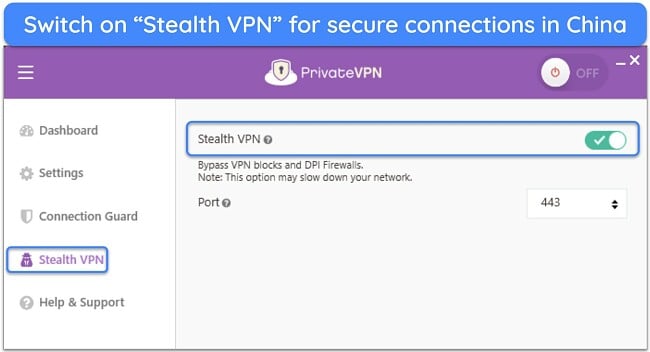
With Perfect Forward Secrecy (PFS), PrivateVPN generates a unique encryption key that changes with every session. Even if one key is compromised, your data from other sessions remains untouched. Therefore, PrivateVPN makes tracking your online activities in Russia and China difficult. In addition, it protects you with:
- Secure protocols — includes OpenVPN, L2TP, PPTP, and IKEv2 — OpenVPN is the only option compatible with ‘Stealth’ mode.
- DNS and IPv6 leak protection — helps you stay anonymous in Russia and China by preventing your data from escaping the VPN tunnel.
- Dedicated IP addresses — assign you a static IP address so you can access sensitive services like online banking in Russia and China without repeated verification checks.
After enabling ‘Stealth VPN’ obfuscation, my speeds dropped by 38% — but it was still enough for high-bandwidth activities. If your internet is slow, you can compensate for some speed loss by switching to 128-bit encryption. Doing this improved my connections by 11%.
Since PrivateVPN doesn’t have a mirror site, make sure to download it before going to China or Russia. Its 3-year plan costs just $2.00 a month — but if you want it temporarily, it’s also one of the best month-to-month VPNs on the market. You’ll also get 30 days to try it risk-free with its refund policy. I tested it firsthand and got my money back in 7 days.
PrivateVPN works with: Facebook, WhatsApp, Instagram, Google services, Netflix, and more
PrivateVPN works on: Windows, macOS, Linux, iOS, Android, Amazon Fire TV Stick, Kodi, and more
4. VyprVPN — Proprietary Obfuscation Protocol Keeps You Safe From Deep Packet Inspection in Russia and China
Key Features:
- Has servers in Russia, Hong Kong, Macau, and 63 countries
- Chameleon protocol with Smart IP prevents DPI and other censorship techniques
- Includes a Master Firewall, data leak protection, public WiFi protection, and more
- Protects up to 10 devices simultaneously with a single subscription
- Provides a 30-day money-back period
VyprVPN works consistently in Russia and China with its proprietary Chameleon protocol. It scrambles your VPN traffic’s metadata to make it appear as regular traffic. VyprVPN pairs Chameleon with ‘Smart IP,’ which regularly changes your IP address without disconnecting to avoid firewalls and other censorship measures.
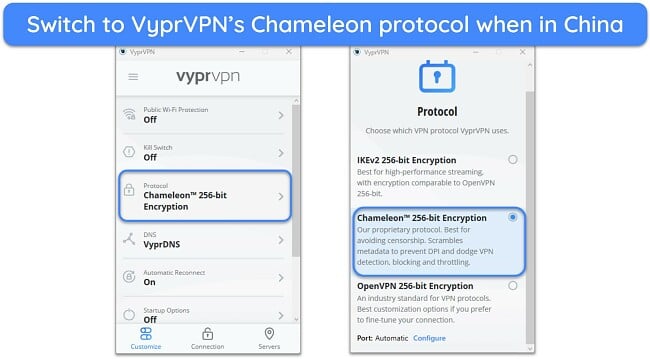
I ran multiple leak tests using VyprVPN’s servers in Russia, Hong Kong, and Macau and didn’t get IPv4, IPv6, DNS, or WebRTC leaks. You can rest assured your location and other information will stay secure, as VyprVPN also offers:
- Master firewall — blocks any unrequested inbound traffic while you’re connected to VyprVPN, preventing potential cyberattacks.
- Public WiFi protection — automatically connects you to VyprVPN when using an unknown WiFi network, keeping you safe while traveling in Russia and China.
One concern with VyprVPN is that it’s headquartered in the US, a 5 Eyes country. However, its no-logs policy means VyprVPN can’t store or share any data even if requested by authorities. Therefore, it guarantees online privacy during your visits to China or Russia.
If you’re in China or Russia and can’t find VyprVPN, use its mirror site to download it. You can get its 2-year plan for just a month and try it risk-free, as VyprVPN has a 30-day refund policy.
VyprVPN works with: Facebook, WhatsApp, Skype, Twitter, YouTube, Netflix, Google, and more
VyprVPN works on: Windows, macOS, Linux, iOS, Android, Amazon OS, routers, and more
Comparison Table: Best VPNs for Russia and China in 2025
| Lowest Price | Servers Near China & Russia | Audited Zero-Logs Policy | Mirror Site | Money-Back Guarantee | |
| ExpressVPN | /month | Belarus, Ukraine, Hong Kong, Taiwan, and Macau | ✔ | ✔ | 30 days |
| NordVPN | /month | Latvia, Estonia, Ukraine, Hong Kong, and Taiwan | ✔ | ✔ | 30 days |
| PrivateVPN | $2.00/month | Ukraine, Latvia, Hong Kong, and Taiwan | ✘ | ✘ | 30 days |
| VyprVPN | /month | Russia, Ukraine, Hong Kong, and Macau | ✔ | ✔ | 30 days |
Editor’s Note: Transparency is one of our core values at WizCase, so you should know we are in the same ownership group as ExpressVPN. However, this does not affect our review process, as we adhere to a strict testing methodology.
How to Choose the Best VPN for Russia and China
All VPNs are rigorously tested following a strict methodology. My first criterion was that my top choices actually work in Russia and China. But besides this, I also considered the following factors:
- Obfuscated servers — Obfuscated servers make it much more likely that a VPN will work in Russia, China, and other censorship-heavy countries.
- Security and privacy — My top picks include robust IP and DNS leak protection, military-grade encryption, a kill switch, and more to protect you in Russia and China.
- Fast speeds — Obfuscation can slow down speeds, but I ran tests and chose VPNs that provided the best speeds despite obfuscation.
- Ease of use — I gauged each VPN on ease of use and checked if it was compatible with various platforms, including Windows, macOS, iOS, and Android.
- Money-back guarantee — A refund policy gives you a window to try out a VPN risk-free. My top picks reimbursed my money within a week.
What to Do If My VPN Isn’t Working in Russia or China?
If your VPN isn’t working in Russia or China, there are a few troubleshooting steps you can try:
- Use an obfuscated server. An obfuscated server hides the fact that you’re using a VPN. It changes how your data packets look so that VPN data appears as regular traffic.
- Change your protocol. Some protocols work better than others. OpenVPN and WireGuard are better because they’re more advanced and compatible with obfuscation.
- Update your VPN. Make sure you’re using the latest version of your VPN app. Many VPNs release updates specifically designed to adapt to evolving censorship measures.
- Try different server locations. Your current server may be blocked due to IP bans on DPI. Try switching to a different location and new IP addresses.
- Use TCP port 443. This port is used for HTTPS traffic and unlikely to be scrutinized. Running your VPN traffic over TCP port 443 mimics regular encrypted web traffic.
FAQs on VPNs for Russia and China
Is using a VPN legal in Russia and China?
Not completely, but they’re restricted. Only government-approved VPNs are allowed to work there. However, these top VPNs work reliably in Russia and China due to their advanced obfuscation.
While using a non-government-approved VPN isn’t allowed in China, there have been no publicly reported cases of visitors being penalized for using one. Still, I strongly advise you to follow all local laws related to VPN usage in China and Russia.
Can I use a proxy in Russia and China instead of a VPN?
Yes, but it might not work because most proxies don’t encrypt your traffic, making it easier for ISPs to detect and block your activities. Only a top VPN like ExpressVPN can work in Russia and China due to powerful obfuscation. However, you can try VPN alternatives, such as:
- Tor network — routes your traffic through many encrypted nodes to mask your identity and location, though it’s not guaranteed to work in highly restrictive environments.
- Shadowsocks proxy — is a lightweight proxy tool designed to work under strict censorship by turning your data into regular HTTPS traffic.
How do countries like China and Russia block VPNs?
Censorship in China and Russia blocks VPN usage to varying degrees. China is much more strict with VPNs, but you can still use a top VPN in both countries. Here are a few ways Russia and China impose VPN censorship:
- Deep Packet Inspection (DPI) — analyzes your data packets to identify if you’re using a VPN and block all VPN traffic.
- DNS tampering — ISPs can alter DNS records to block requests for VPN services, preventing you from accessing VPN sites or connecting to specific servers.
- IP address blocking — blocks IP addresses associated with known VPN servers, making it impossible to establish a VPN connection to these servers.
- Port blocking — blocks specific network ports commonly used by VPN protocols, like UDP 1194 for OpenVPN and UDP 51820 for WireGuard.
- App store restrictions — forces app stores to remove VPN apps, particularly renowned ones like Apple’s App Store or Google’s Play Store.
How can I check if my VPN works in Russia and China?
Is it safe to use a free VPN in Russia and China?
No, it’s unlikely a free VPN can keep you anonymous in Russia and China. Instead, get a premium VPN like NordVPN and try it free for 30 days with its money-back guarantee.
Free VPNs often lack strong encryption and obfuscation capabilities required to work under strict censorship. Additionally, there’s always a risk of them logging and selling your data. The worst of them can even infect your device. You can try a few safe free VPNs, but they’re unlikely to work in Russia or China.
Get a VPN (That Works) for Russia and China Today!
Traveling to Russia and China can block you from common services like Gmail, YouTube, and social media apps. Unfortunately, these countries block non-government-approved VPNs and finding a safe and secure VPN that gives you access to the global internet is difficult. I tested several options and found the best ones that work in both countries.
ExpressVPN is the #1 VPN that works in Russia and China. All its servers use obfuscation to avoid censorship measures like Deep Packet Inspection. Despite blocks, you can download ExpressVPN through its mirror site in China and Russia. You can test ExpressVPN yourself and if you’re not satisfied, you have up to 30 days to claim a refund.
Summary — Best VPNs That Work in Russia and China in 2025
Editor's Note: We value our relationship with our readers, and we strive to earn your trust through transparency and integrity. We are in the same ownership group as some of the industry-leading products reviewed on this site: ExpressVPN, Cyberghost, Private Internet Access, and Intego. However, this does not affect our review process, as we adhere to a strict testing methodology.



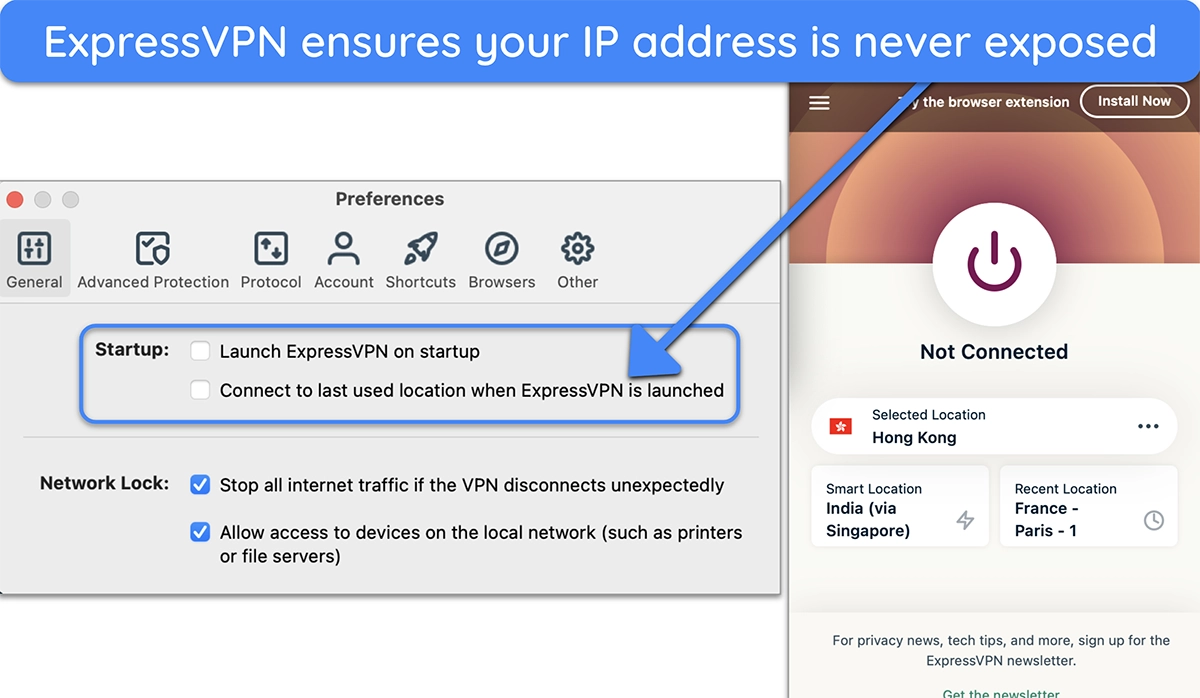

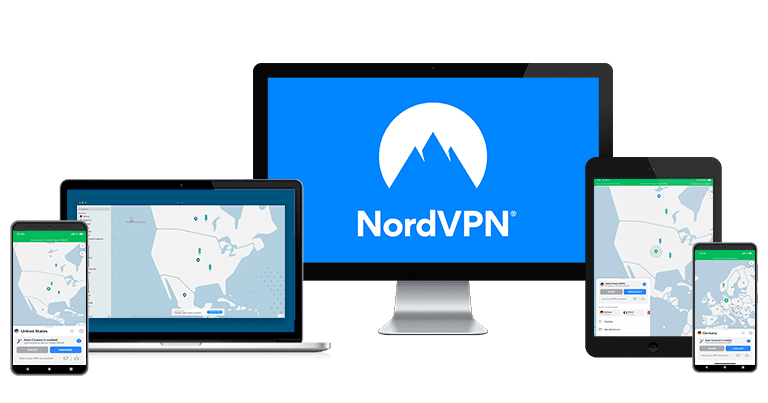
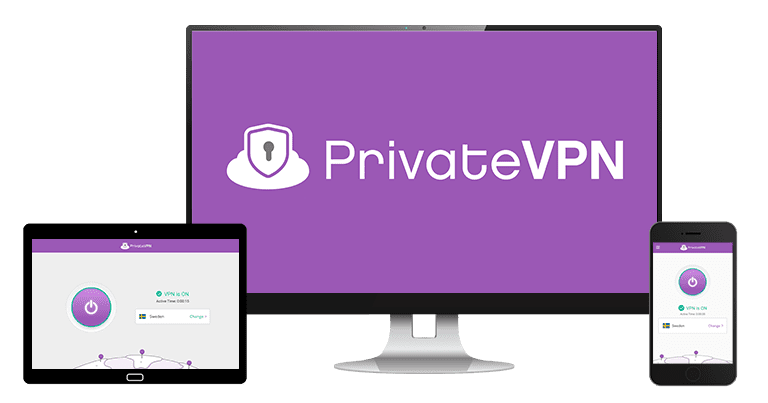
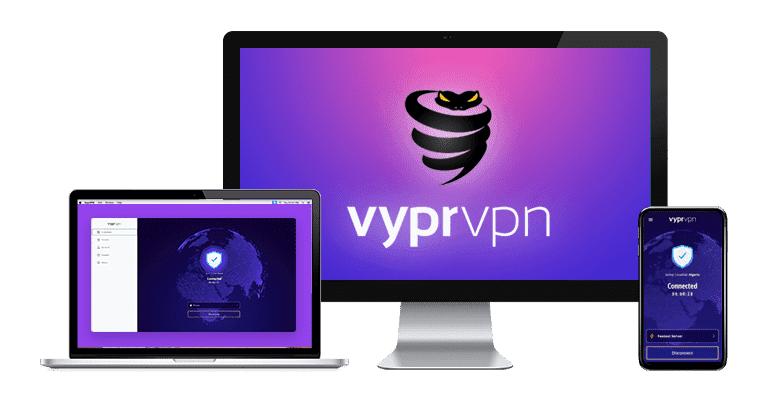





Leave a Comment
Cancel